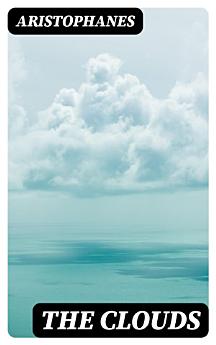The Clouds
Aristophanes
may 2022 · DigiCat
Libro electrónico
38
Páginas
family_home
Apto
info
reportLas calificaciones y opiniones no están verificadas. Más información
Acerca de este libro electrónico
Aristophanes' 'The Clouds' stands as a luminary work of classical Greek comedy, both essaying the idiosyncrasies of Athens' intellectual scene and contributing to the comedic tradition with its robust infusion of satire and societal critique. Characterized by its sharp wit and the playwright's distinct comedic style, the play entwines the absurd with the intellectual, reflecting Aristophanes' capacity to engage with complex philosophical ideas through the medium of comedy. It presents a piercing examination of the philosophical movements of the time, while remaining a vibrant artifact embedded within the Athenian comedic tradition, a milieu ripe with civic engagement and reflective of the political consciousness of its era. As such, the work holds a revered place within both the literary and philosophical canons, pioneering the 'comedy of ideas' genre with dexterity and acumen. Aristophanes, a playwright famed for his acerbic and often confrontational humor, was no stranger to controversy. His portrayal of Socrates in 'The Clouds' as a sophistical intellectual continues to invite scrutiny and debate regarding the historical accuracy of such a depiction. Nonetheless, it reflects the zeitgeist of Aristophanes' Athens—a period steeped in innovation yet equally susceptible to the scrutinizing gaze of its cultural critics. The author's motivations, it can be argued, extended beyond mere lampooning; his work interrogates the philosophical integrity of contemporary Athenian thought and the potential societal ramifications of unchecked intellectual trends. As a result, the text is as much a historical document as it is a piece of theatrical art, offering insights into the intellectual climate from which the playwright drew his inspiration. For readers seeking to immerse themselves in the profound comedies of ancient Greece, 'The Clouds' remains an indispensable classic, quintessential in its elucidation of the Athenian disposition towards philosophy and its thinkers. Aristophanes' work is recommended for its timeless humor poignantly interlaced with educational value—a portal through which modern audiences can decipher the complexities of classical thought. This play, thus, is an essential read not only for students of literature but also for those interested in the genesis of comedic prowess and its relationship to the societal fabric of one of history's most influential civilizations.
Acerca del autor
Aristophanes, the iconic ancient Greek comedic playwright, lived during the late 5th and early 4th centuries BCE, a time of both cultural blossoming and political strife in Athens. As a master of Old Comedy, his work is characterized by sharp political satire, social commentary, and the incorporation of the fantastical. Known for a career spanning over forty years, he authored approximately forty plays, of which only eleven complete works have survived the ravages of time, 'The Clouds' being among the most famous. 'The Clouds,' a satirical play critiquing the sophistic education of the time, provides valuable insights into Athenian society and the intellectual trends of the era. The play controversially caricatures the philosopher Socrates as a representative of sophistic thought, unfortunately contributing to the misunderstood portrayal of Socrates for posterity. Aristophanes's acerbic wit and dramatic craft were not just entertainment but also a vehicle for provocative thought in the public domain. His works have been critical to the understanding of classical Athens and remain studied for their linguistic richness, imaginative plots, and for providing a lens to view the complex dynamics of his society. His literary contributions have cemented his legacy as one of the leading figures in the annals of comedic literature.
Califica este libro electrónico
Cuéntanos lo que piensas.
Información de lectura
Smartphones y tablets
Instala la app de Google Play Libros para Android y iPad/iPhone. Como se sincroniza de manera automática con tu cuenta, te permite leer en línea o sin conexión en cualquier lugar.
Laptops y computadoras
Para escuchar audiolibros adquiridos en Google Play, usa el navegador web de tu computadora.
Lectores electrónicos y otros dispositivos
Para leer en dispositivos de tinta electrónica, como los lectores de libros electrónicos Kobo, deberás descargar un archivo y transferirlo a tu dispositivo. Sigue las instrucciones detalladas que aparecen en el Centro de ayuda para transferir los archivos a lectores de libros electrónicos compatibles.







